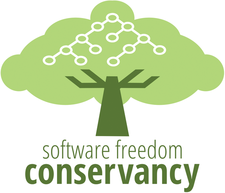Updates on technologies, trends, and tools
NEWS

© CC BY-SA 3.0
In the news: Software Freedom Conservancy announces end to VMware lawsuit; Chef goes all open source; SUSE spins off from parent company; Gnome 3.32 released; NSA's reverse engineering tool released; and a new Mirai Botnet variant discovered.
Software Freedom Conservancy Announces End to VMware Lawsuit
Linux developer Christoph Hellwig has announced that he is discontinuing his lawsuit against VMware for non-compliance with the terms of the GPL. Hellwig and the Software Freedom Conservancy accused VMware of including GPLed code associated with vmklinux into VMware's proprietary vSphere product. A German appeals court dismissed the case on February 28. Hellwig and the Software Freedom Conservancy have decided they will not appeal the case further in German courts.
The judge appears to have decided the case on procedural grounds without taking on the larger questions related to the GPL and the power of the copyleft protection. The questions hinged around whether the plaintiffs had successfully proven that the code was present in VMware's code base and that the use of the code was non-compliant. VMware maintains that the vmklinux code is a separate component that does not force release of vSphere under the copyleft requirement.
Software Freedom Conservancy executive director Karen Sandler expressed disappointment, "VMware knew what they were doing was wrong but continued to generate revenue by infringing copyrights in Linux, while slowly working toward non-infringement."
[...]
Buy this article as PDF
(incl. VAT)
Buy Linux Magazine
Subscribe to our Linux Newsletters
Find Linux and Open Source Jobs
Subscribe to our ADMIN Newsletters
Support Our Work
Linux Magazine content is made possible with support from readers like you. Please consider contributing when you’ve found an article to be beneficial.

News
-
Parrot OS Switches to KDE Plasma Desktop
Yet another distro is making the move to the KDE Plasma desktop.
-
TUXEDO Announces Gemini 17
TUXEDO Computers has released the fourth generation of its Gemini laptop with plenty of updates.
-
Two New Distros Adopt Enlightenment
MX Moksha and AV Linux 25 join ranks with Bodhi Linux and embrace the Enlightenment desktop.
-
Solus Linux 4.8 Removes Python 2
Solus Linux 4.8 has been released with the latest Linux kernel, updated desktops, and a key removal.
-
Zorin OS 18 Hits over a Million Downloads
If you doubt Linux isn't gaining popularity, you only have to look at Zorin OS's download numbers.
-
TUXEDO Computers Scraps Snapdragon X1E-Based Laptop
Due to issues with a Snapdragon CPU, TUXEDO Computers has cancelled its plans to release a laptop based on this elite hardware.
-
Debian Unleashes Debian Libre Live
Debian Libre Live keeps your machine free of proprietary software.
-
Valve Announces Pending Release of Steam Machine
Shout it to the heavens: Steam Machine, powered by Linux, is set to arrive in 2026.
-
Happy Birthday, ADMIN Magazine!
ADMIN is celebrating its 15th anniversary with issue #90.
-
Another Linux Malware Discovered
Russian hackers use Hyper-V to hide malware within Linux virtual machines.

